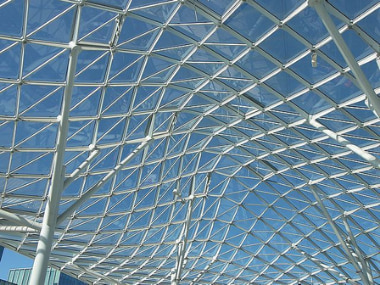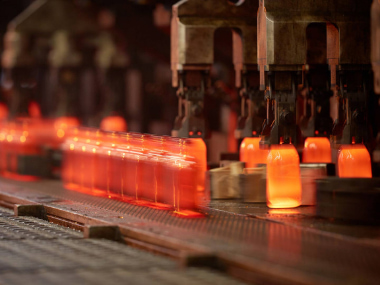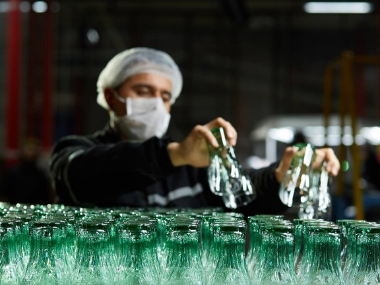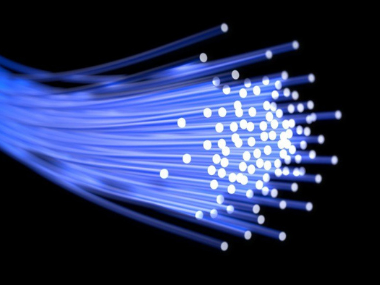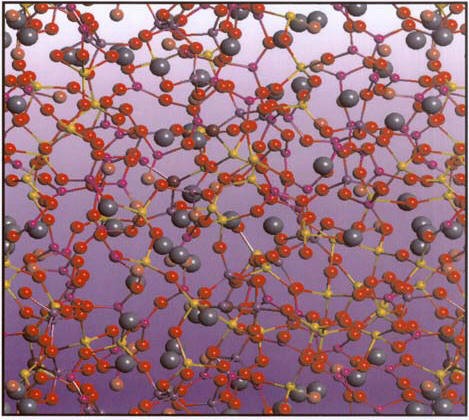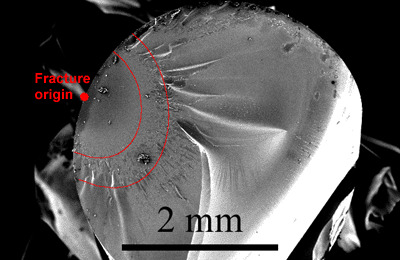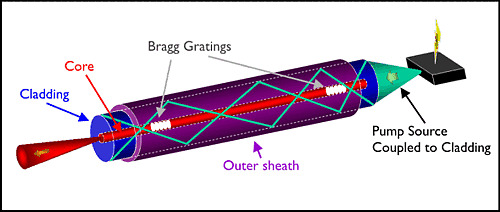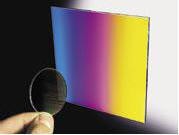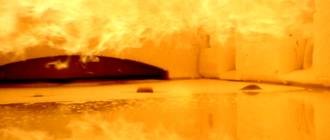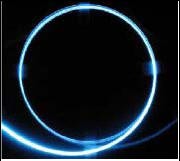
The greater part of the continuing activity of the ICG is carried out by its Technical Committees (TCs). Created at the initiative of the member organisations, the TCs cover vital topics in glass science and technology, listed below. Their operating procedures are described in a set of guidelines, that explain the different roles and responsibilities of Council, the Steering Committee, the Coordinating Technical Committee (CTC), TC chairs and TC members.
The members of the TCs have access to resources and facilities which are contributed freely to the pursuit of the technical objectives defined by the individual TCs. Meetings of the TCs are held regularly to discuss the results of inter-laboratory experiments and surveys. In addition to advancing glass science and technology, the TCs are also concerned with the definition of standards. Many scientific publications originate from the work of TCs.
The TCs are organized into groups according to their R&D activity fields, and are supported by coordinators (CTC members). But cooperation between the TCs is not limited to these R&D activity fields, since ICG has a broad understanding of its role in providing an R&D platform. The work of the different TCs is related to the various R&D activity fields described below

TC members are experts in their particular fields and are selected from universities, institutions and industry; the figure shows the distribution. They are proposed by their member organisations.
Each year the CTC publishes an Annual Report of the activities of the Technical Committees. For a more complete description of their activities please download a pdf version of these reports (2008, 2009, 2010, 2011, 2012, 2013, 2014). More recent Annual Reports are available using the links below.
For further information about any of these committees please contact the committee chairs. They are grouped into areas of related interest and each group is overseen by a cluster coordinator. The contact information to the Cluster Chairs and TC Chairs can be viewed on “People” page under the “About” section.
A more detailed description of the committee activities is also presented on the individual web pages, which can be viewed by following the links under the cluster names in the navigation bar menu, or by viewing the CTC Annual Reports and the brief descriptions down below in this page.
BASICS CLUSTER
Basic Glass Science (TC03)
TC03 studies the atomic scale structure and dynamics of glass (including the melt from which it is quenched and through the glass transition), structure – property relationships, and the interpretation of properties on an atomic scale. This includes: experimental measurements, computer simulation and modelling. It promotes information interchange by defining standards for such interchange and by organising meetings of those involved.
Nucleation, Crystallisation and Glass Ceramics (TC07)
The mission of TC07 is: to understand from both theoretical and experimental points of view the basic physical and chemical processes that govern crystal nucleation and growth in glasses; and to assist academic, governmental, and industrial researchers to develop, characterize, and optimize existing and novel glass-ceramics for domestic and high-tech applications. Its main tasks are to participate in round-robin exercises aimed at identifying and understanding nucleation and growth processes in specific glass compositions of scientific or technical interest; to organize scientific symposia on glass crystallization every 3 years and to foster collaborative research work between members.
This TC focuses on the nature of the vibrations in glasses and on the structural information that can be gained using inelastic spectroscopy techniques such as infrared absorption, light scattering, neutron and X-ray scattering, etc, as well as numerical simulations of the vibrational properties. They are mainly concentrating on the origin of the boson peak and its relation with the end of acoustic branches,an understanding of the optic modes of oxide glasses and their relation to the structure, and the contribution of inelastic spectroscopies to the characterization of the structural properties of technological glasses.
Atomistic Simulations (TC27)
The focus of the new TC is on developing the theoretical foundation for advancing the modeling and simulation of glassy systems. The scope includes both the development of accurate interatomic potentials for multi-component glass-forming systems, as well as the development of new theoretical approaches and algorithms for overcoming the intrinsic time and length scale limitations of existing simulation techniques. Emphasis is on bringing the application-oriented glass simulation community together with the community working on the basic numerics for dynamic systems in order to establish a common strategic research agenda in the long run.
Quantum Beam Diffraction (TC29)
Understanding glass structure is challenging and puzzling due to the lack of translational periodicity.
The use of quantum beam diffraction using X-rays, neutrons, and electrons is essential to understand glass structure beyond the first neighbor distance. Progress has been made in recent years in interpreting reciprocal space data to understand the structure of glass at an extended length scale. Understanding diffraction data in both reciprocal and real space is challenging and hence this knowledge will be shared in this TC. The two important topics of the TC are “diffraction measurement” and “modelling of glass structure”. Where the latter is consistent with diffraction data and other structural information.
CHARACTERISATION CLUSTER
Chemical Durability and Analysis (TC02)
In the field of chemical durability and glass analysis and through round robins, TC02 establishes new analytical methods, develops reference materials and initiates proficiency testing allowing participating labs to meet certification requirements. Additional works planned: organization of workshops on “Quality Assurance in Glass Analysis” and “Cullet Sorting” during the next ICG meetings.
Mechanical Properties of Glass (TC06)
TC06 establishes the most effective ways of characterising the mechanical strength of glass products. It participates in round-robin exercises and organizes scientific symposia.
Optical Properties of Glass (TC10)
The mission of TC10 is to study and improve the measurements of optical properties of glass and coated glass products. The committee has worked on measurements (in the form of internal round robins) in the UV, visible, NIR and far infrared wavelength ranges over the last 25 years. Dissemination of results in the form of reports and publications has allowed the industry a means to homogenize measurement techniques and calculations of optical properties among the producers. In addition, activities within TC10 have demonstrated the need for improving measurement techniques resulting in European funded projects and eventual standardization. The committee has performed round robins for determining the state of the art for such properties as UV and solar transmission, colorimetry, and emissivity.
APPLICATIONS CLUSTER
Glass for Medicine and Biotechnology (TC04)
TC04 promotes interchange of information in the field of glasses for medicine and biotechnology by organizing meetings, promoting collaborations between scientists, establishing a database of expertise, promoting the use of glass in medicine and biotechnology by representing glass at meetings of these fields, and acting as a resource for those in the medicine and biotechnology areas.
Hazardous and Nuclear Waste Vitrification (TC05)
This newly formed committee aims to establish a forum to discuss and disseminate technical information on waste glass chemistry, vitrification processes, glass melting technologies and waste glass environmental performance by promoting the programming at technical conferences, conducting technical workshops and facilitating publication of information. A further goal consists of exchanging technical data among experts.
Nano-structured Glasses (TC16)
TC16 is focused on glasses and coatings obtained by chemical nano-technology, glasses containing semiconductor quantum dots, noble metal nanoparticles or nano-clusters, transparent (nano) glass ceramics, metamaterials and photonic crystals, photonic crystal fibers, other glass matrix nano-composites and multi-functional nano-composite coatings. TC16 wishes to promote collaborative research activities between its members, including Round Robin tests, the establishment of data bases and the organization of topical sessions on nano-structured glasses in scientific and technical meetings.
Glasses for Optoelectronics (TC20)
TC20 is generating a roadmap for the approaching optoelectronics revolution and promotes basic and applied research on glasses for photonics and information technology.
GLASS PRODUCTION CLUSTER
Materials for Glass Manufacturing (TC11)
TC11 discusses advanced refractory materials and worldwide industrial experience on glass melting furnaces. The material properties and application problems are reported and analyzed with the goal of recommending testing procedures and inspection methods for refractory materials.
Environment (TC13)
The mission of TC13 is: to exchange information concerning the Best Available Techniques (BAT) for reducing the environmental impact of the glass industry, by comparing the results of different technologies applied to various glass production plants; and to determine the best practice for measuring the main pollutants released during the melting process (total particulate, NOx, SOx, HCl, HF, heavy metals etc.) by means of parallel measurements, material balances, round robin tests.
Gases in Glass (TC14)
The main task of TC14 is to compare and improve methods for the analysis of gaseous inclusions in glasses, for the determination of solubilities and diffusivities of gases dissolved in glass melts, for the characterization of blister sources and the behaviour of blisters in glass melts. On the basis of obtained results relationships between the properties of dissolved gases in glass and the glass composition are discussed at scientific symposia, which are periodically organized by TC14.
Properties of Glass Forming Melts (TC18)
The mission of TC18 is to offer a platform for exchange of scientific and technical information on glass melt property data, new glass melt property measurement methods and critical evaluation of glass melt data. Its target is to generate sets of reliable data on glass melt properties for modelling and engineering purposes and for research in glass structure. Its main tasks are to organize seminars and round robin tests on measuring methods and to set up catalogues of facilities offering glass melt property measurements.
Modelling of Glass Melting Processes (TC21)
Its aim is to share and exchange current practice and to develop the theory and application of mathematical modelling of glass furnaces.
The activities of TC21 are carried out as round robin tests where model results of members are compared to each other and with furnace conditions. A step wise validation of different components of the models related to the whole glass furnace is undertaken. Improvements are, subsequently, integrated into the models such that models will provide more appropriate simulations of the process.
From 2013 this committee will include the activities of the old TC15 on Sensors for control of glass production.
Modelling of Glass Forming Processes (TC25)
It is the mission of this TC to promote information exchange and activities in the field of numerical simulation of glass forming processes on both scientific and technological level.
INFORMATION, COMMUNICATION, EDUCATION, HISTORY CLUSTER
Information and Communications (TC01)
The mission of TC01 is to promote the activities of the International Commission on Glass and of all the TCs by diffusing information and results via the internet and printed leaflets; and to provide an updated database of all the members of TCs.
Archeometry of Glass (TC17)
The purpose of TC17 is to bring together glass scientists, archaeologists, museum curators, and conservators to present and discuss the results of research on early glass and glassmaking, and on the conservation of historical glass objects. Two very important aspects of TC17 are that it promotes collaboration among glass specialists in widely-separated countries and it serves as a stimulus and encouragement for glass scientists and historians in developing countries.
Education and Training in Glass Science and Engineering (TC23)
It is the aim of TC 23 to promote educational activities within the profession in the field of glass science, engineering and technology. Its main activities are to organise and participate in training courses and workshops around the world.

